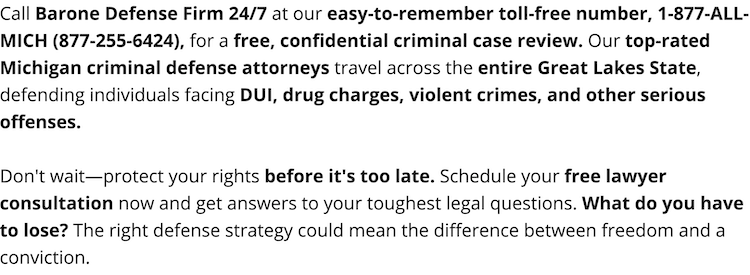Legalization of Marijuana
The process of legalizing something generally happens slowly over a long period of time. Below is a short history of the legalization of marijuana in Michigan. Contact a professional Michigan medical marijuana lawyer for more information.
Legalization in 2008
The legalization of marijuana in Michigan began in 2008, with the legalization of medical marijuana. In November of that year, a ballot proposal was created for Michigan voters. The proposal's drafters wanted to give physicians the ability to approve the use of marijuana for a few serious medical conditions, such as AIDS and cancer.
The proposal also asked that patients be allowed to grow marijuana for themselves, and for caregivers to have the ability to grow marijuana for their patients. The proposal passed, and the legalization of medical marijuana came into being in Michigan.
The MMMA
The proposal was turned into the Michigan Medical Marijuana Act (MMMA), which became a law in December of 2008. The MMMA allowed both qualified patients and qualified primary caregivers to do a few different things.
First, it allowed both parties to apply for an identification card and a spot on the state registry. Having an identification card protects patients and caregivers from prosecution of certain marijuana related crimes, and also provides defenses in the event or prosecution.
Growing and Possessing Marijuana
In addition, licensed patients and primary caregivers can grow and possess certain amounts of marijuana under the MMMA. A licensed patient can grow up to 12 plants for their own use, and a licensed medical marijuana caregiver can grow up to 12 plants for up to five patients.
A person who is both a patient and a licensed medical marijuana caregiver can grow a total of 72 plants. With the legalization of marijuana in Michigan, a licensed patient can possess up to 2.5 ounces of usable marijuana as well.
Those licensed to grow marijuana under the MMMA are protected from criminal prosecution for using medical marijuana. This protection is achieved using registry identification cards for those who qualify.
Compliance with Michigan Medical Marijuana Laws
Due to the MMMA, at the beginning of 2009, the state of Michigan received many applications for registry and identification cards. The MMMA was approved in April 2009, and within two months the Department of Community Health approved 1,902 applications for the medical marijuana registry.
Since then, hundreds of thousands of applications have been received and approved by this department. Of course, not every application is granted, but there is still a considerable number of people in Michigan who have been approved by the state for the legal use of medical marijuana.
However, just because medical marijuana was approved at the state level does not mean that it was also decriminalized at the federal level. In 2009, the federal government made it clear that marijuana is still an illegal and dangerous substance. It is therefore still subject to criminal prosecution.
Ogden Memo
However, through The Ogden Memo, the federal government implied that those who were in clear compliance with Michigan's state laws concerning marijuana would not be prosecuted for use or possession of medical marijuana. What constitutes "clear compliance" with the MMMA is not expressed, although the memo does give examples such as an illness for which marijuana is part of a treatment plan that complies with state laws.
In addition, The Ogden Memo outlines a few instances where clear and unambiguous compliance is not present. For example, this includes when marijuana is sold to minors, if the unlawful use or possession of firearms is present, or if a person has ties to criminal activity.
Further Information
Other examples include the illegal possession or sale of marijuana or other controlled substances, or if the marketing or financial practices of a person are not consistent with state laws.
The Ogden Memo applies to any state that has passed medical marijuana legalization laws, not just Michigan. Instead of addressing each state and situation separately, the Attorney General addressed all states in this blanket memo.
It is not yet clear how the new administration will deal with this issue, though the preliminary position appears that under President Trump they will go after recreational but not medical use of marijuana at the federal level.
Medical Marijuana Dispensaries
The MMMA did not address medical marijuana dispensaries, and many people took this as an opportunity to open such dispensaries where medical marijuana could be bought and sold. But these dispensaries were not protected under the MMMA, and therefore subject to prosecution.
In fact, in the following years, many of these dispensaries were shut down and prosecuted by the law. This would begin in Livonia, which passed a law prohibiting the use of enterprises in ways that will break any local, federal, or state laws. Many other towns and counties in Michigan followed suit and created laws that prevented the legal use of medical marijuana dispensaries and medical marijuana in general in certain parts of the state.
Still, the MMMA and other laws did not make it clear whether medical marijuana dispensaries should be allowed in Michigan or if counties had the right to ban them. The legalization of marijuana in Michigan is an issue that would have to be settled in later years.
 Barone Defense Firm Home
Barone Defense Firm Home
















